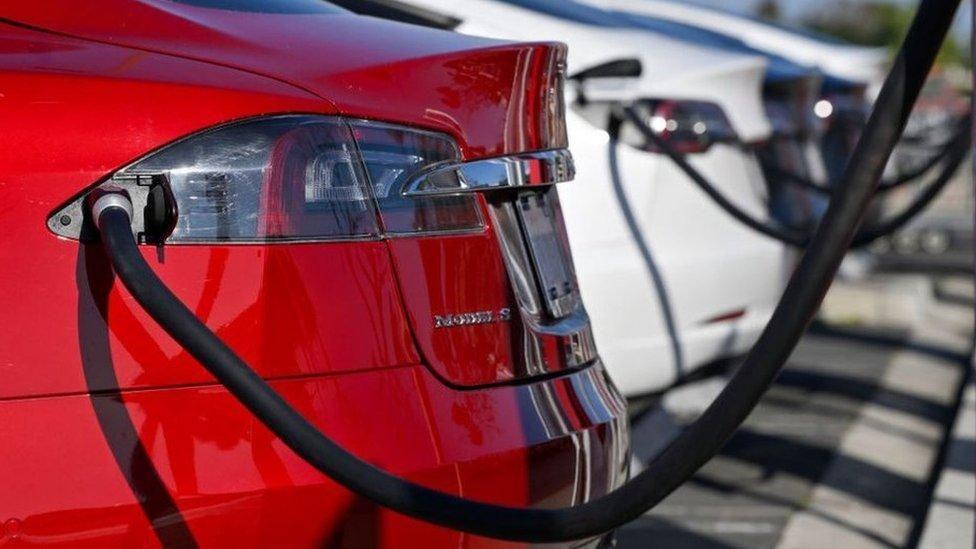Elon Musk's Tesla lobbied UK to charge petrol drivers more

- Published
Elon Musk's electric car firm Tesla pushed the government to make petrol car drivers "pay more" in the days after Labour won the general election.
Musk, the chief executive of Tesla, has waded into British politics openly on social media, predicting "civil war" and criticising prime minister Sir Keir Starmer.
But behind the scenes his firm was trying to persuade the new government to extend a policy that would boost his firm's profits.
The company called for the mandate to boost electric car sales to be extended to lorries, and said electric vehicle (EV) subsidies could come from charging people buying petrol and diesel cars.
"The government should ask those still choosing to purchase a new polluting vehicle, to pay more," Tesla's European boss, Joe Ward, wrote in a letter addressed to roads minister, Lilian Greenwood, in July.
The letter, released under a Freedom of Information request made by the EV newsletter The Fast Charge, external, shows that Tesla "applauded the Labour Party's strong position [on] decarbonisation of the energy system by 2030, growth and net zero".
The praise came just weeks before Musk lashed out online at the UK government over the summer riots.
The BBC reported in September that Musk was not invited to the government's investment summit partly because of tensions over his political interventions.
Since then the billionaire has become the indispensable right-hand man to incoming US president, Donald Trump. The surging value of his stake in Tesla since the election there has underpinned an incredible rise in Musk's wealth.
Musk hits back after being shunned from UK summit
- Published26 September 2024
General Motors pulls plug on robotaxi business
- Published11 December 2024
The UK government is currently consulting on changes to a key measure, meant to encourage sale of electric cars, the Zero Emission Vehicle (ZEV) mandate.
The ZEV mandate requires carmakers to sell a set number of EVs per year, and if they cannot meet their targets, they have to purchase credits from other EV makers who have sold more of the lower polluting vehicles.
UK carmakers are pushing for the policy to be diluted, arguing customers are not yet buying EVs in high enough numbers.
The letter from Tesla lobbied for the opposite policy, saying the ZEV mandate "must be protected and strengthened".
Tesla stands to become a major beneficiary of the ZEV mandate as it can sell surplus credits from its imports of its own EVs, made in China.
Tesla also lobbied the new government for the UK to lead on the "scale up of autonomous vehicles", and offered a demonstration of the companies' vision.